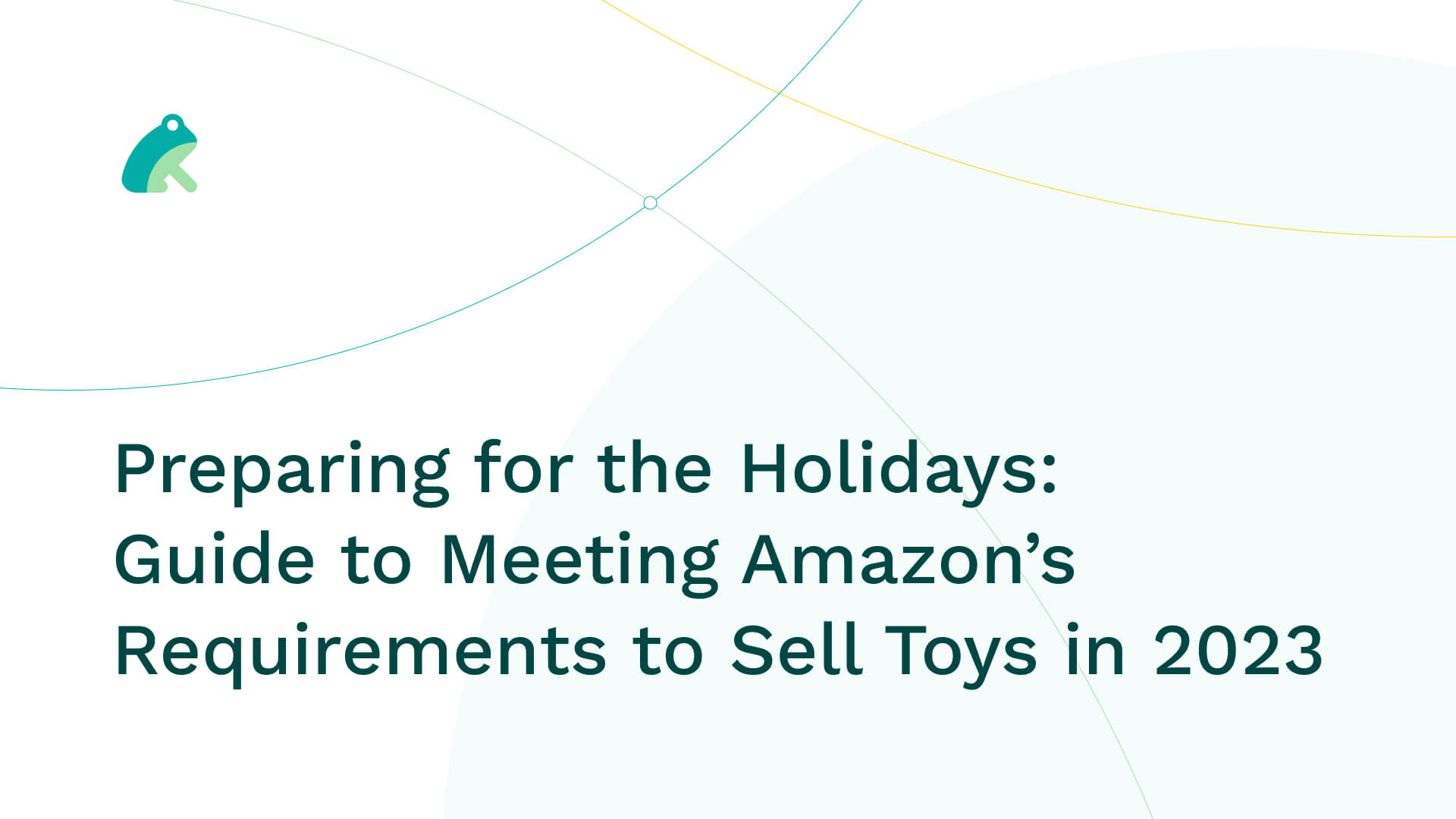Preparing for the Holidays: Guide to Meeting Amazon’s Requirements to Sell Toys in 2023
October 15, 2024

Selling toys on Amazon can be a lucrative venture, but it requires meticulous adherence to the platform's stringent regulations and safety standards. As of 2023, Amazon's guidelines for selling toys prioritize customer safety and satisfaction. Here’s a comprehensive guide on meeting Amazon’s requirements:
1. Product Safety Compliance:
- Certifications: Ensure your toys comply with relevant safety standards like ASTM F963, EN71, or other country-specific regulations.
- Testing: Conduct thorough testing through certified labs to verify compliance with safety guidelines.
- Age Appropriateness: Clearly label toys with age-appropriate warnings to align with Amazon’s safety requirements.
2. Quality Images and Descriptions:
- High-Quality Images: Provide clear, high-resolution images that accurately depict the product, ensuring compliance with Amazon’s image guidelines.
- Accurate Descriptions: Craft detailed and accurate product descriptions, highlighting features and specifications while avoiding misleading information.
3. Inventory and Packaging:
- Barcodes and Labels: Ensure each toy has a unique product identifier (UPC, EAN, or ISBN) and complies with Amazon’s labeling requirements.
- Packaging Standards: Package toys securely to prevent damage during shipping, following Amazon’s packaging and prep requirements.
4. Restricted Products and Hazmat Compliance:
- Restricted Items: Avoid selling prohibited items such as toys with certain materials or those considered hazardous or illegal.
- Hazmat Regulations: Comply with Amazon’s hazardous materials (Hazmat) policies for toys containing batteries or other potentially dangerous components.
5. Customer Experience and Feedback:
- Fulfillment and Delivery: Meet Amazon’s shipping and fulfillment standards to ensure timely and reliable delivery to customers.
- Customer Service: Provide excellent customer service to address queries, handle returns efficiently, and maintain a high seller rating.
6. Seller Performance Metrics:
- Performance Targets: Maintain a healthy seller account by meeting Amazon’s performance metrics, including order defect rates, late shipment rates, and customer feedback.
7. Compliance with Intellectual Property Rights:
- Originality: Ensure your toys do not infringe on any intellectual property rights, trademarks, or copyrights. Avoid selling counterfeit or unauthorized products.
8. Legal and Tax Obligations:
- Tax Compliance: Adhere to tax regulations and collect applicable taxes for your sales based on Amazon’s requirements.
- Legal Obligations: Comply with all legal obligations, including consumer rights, warranties, and any other relevant laws governing toy sales.
9. Continual Monitoring and Adaptation:
- Stay Updated: Regularly check Amazon’s seller guidelines and policy updates to adapt your toy-selling strategies accordingly.
- Feedback and Improvement: Utilize customer feedback to enhance products and services, continuously improving your offerings.
Adhering to Amazon’s stringent guidelines for selling toys is pivotal for success on the platform. Ensuring product safety, accurate listings, compliance with regulations, and providing excellent customer service are critical elements to thrive in the competitive toy market. By meticulously following these guidelines and staying abreast of Amazon’s ever-evolving requirements, sellers can create a trusted and thriving presence in the lucrative world of online toy sales.